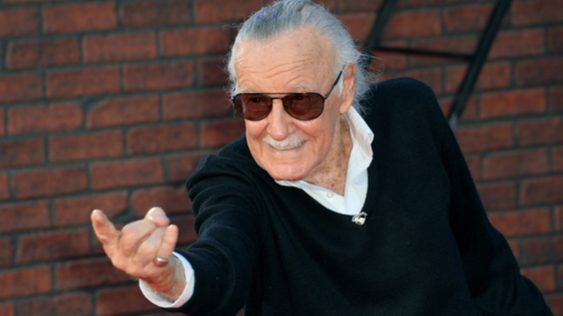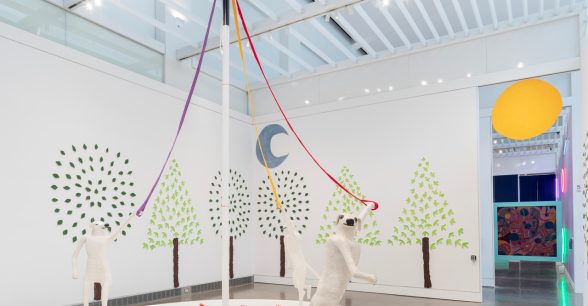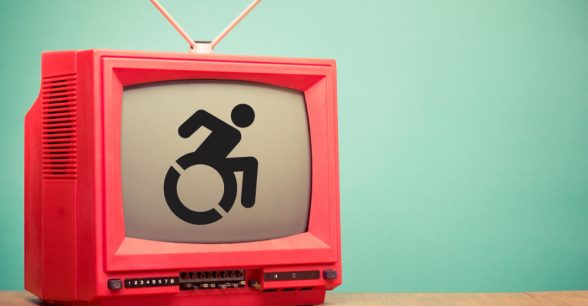With Great Power Comes Great Accessibility – How the Death of Stan Lee Affects the Disability Community
On November 12, 2018, our cultural light was dimmed with the loss of Stan Lee. Often described in the same manner as the characters he created, the loss of the mighty, spectacular, and at times uncanny Stanley Martin Lieber will be felt in multiple cultural spaces and bastions of geekdom and nerdanity. While there are many that will spend their time writing endearing and likely more readable think pieces on Stan Lee’s influence on comics, fiction, film and pop culture, we cannot honor his legacy without discussing his influence on the disability rights movement.
At the beginning of Stan Lee’s career, comics were still a publisher’s side project, a throwaway project mostly aimed at children with an added benefit of selling bubble gum or fruit pies. Lee’s presence in the industry became part of the significant wave of writers, artists and publishers who saw comics as a literary art form – a stance that changed the industry and had an impact on generations of readers. More than just writer and creator, Stan Lee’s name is synonymous with the art storytelling and values of comics as well as the unique influence and hopes of the readers. Almost every leader in marginalized communities has talked about the influence of comics and will almost always mention one of Lee’s creations. In the Black community, Ben Parker’s advice about great power and responsibility is part of the cultural mainstay of Black leadership, and certain disability leaders have even joked on Twitter which members of the X-Men they most associate with their leadership style.
Stan Lee’s characters have become archetypes of our own personal identities and as characters have become more representative of individuals from different backgrounds, religions, ethnicities and genders, their importance has blossomed. For those of us from marginalized communities, there is no time that you are not aware of a character that fits in line with your own cultural background. Watching these characters, you continually hope that they continue to represent you as the most brave, most complex and the most heroic.
Uncanny Archetypes
For many of us in the disability community, The X-Men is the first indication of a world in which otherness and disability could be more than just a difference; it could be a path to personal power. With a focus on common human themes of good versus evil and prejudice and racism, Stan Lee’s collaboration with Jack Kirby ended up becoming the archetype for acceptance in education, and power in our personal and social worlds. While attempting to create a group of teen heroes who had been segregated because of “differing abilities,” Lee and Kirby instead stumbled on the experience that every child with a disability has faced in managing their disability, finding a mentor, learning how to adapt, and turning that experience into a power.
“Of course, it was the natural thing to do, instead of disorienting or alienating people who were different from us, I made the X-Men part of the human race, which they were.” – Jack Kirby
“I wanted them to be diverse. The whole underlying principle of the X-Men was to try to be an anti-bigotry story to show there’s good in every person.” – Stan Lee
The X-Men and their continued quest to be included in a society that questions their humanity has become a shorthand for the disability experience. The effort and intent that the characters have to muster to control their powers and their lives is a standing metaphor for disability power and the humble school in Westchester is likely the only segregated school that any kids with disabilities hope they ever get to attend.
The Iconoclast
While the X-Men hints at how one manages a marginalized existence, Daredevil offers the more direct approach by answering the question of “What would happen if a superhero had a disability?” Likely the most obvious example of Stan Lee’s influence on disability, Daredevil offers an intimate look at what it means to be a hero. Beginning with his origin, Matt Murdock/Daredevil acquires his powers through the event that also causes his disability. This is key because it continually causes us to question what disability means to our society and how Daredevil fits inside of it. Because his powers give him the ability to navigate without sight, some readers even question whether or not Daredevil is actually Blind. I will leave that to you to decide, but what is most important about Daredevil is not the nature of his powers, but the decisions he makes. Daredevil is not a hero “in spite of his disability.” In his day job he acts as a lawyer conducting mostly pro-bono work as a hero for those who need his help. There is little contrast with his work under the mask in his evenings. By day he helps those in need;by night he helps those in need. He is Blind the entire time. Murdock would do what he could to help no matter what the situation. He is not motivated to do so because he is Blind, but because of values that he has about not being afraid to do what is necessary.
Additionally, Daredevil is also not a hero “’because of his disability” — or that is to say, it is not the fact that he is Blind that makes him a hero. One could argue that Matt Murdock is a hero because he is willing to do whatever is necessary to succeed. He is the Man without Fear because given the choice between personal injury and failure, he will accept personal injury so that he may return and win another day.
Created in 1964, Daredevil also represents an archetype of disability that significantly fell in line with the growing values of independence for the broader disability community and the success of the Blind Community in talking about their influence and contributions to our world. While we would also see some of the greatest musicians of the day bring attention and positive representation to the Blind Community, Daredevil was an example – especially if you did not know many Blind people – that Blind people are complex individuals who can have professional careers.
Perhaps the most important role that Stan Lee has played, however has been in the evolution and development of his characters. As the unique cultural and ethnic perspectives have become a greater part of the mainstream as well as the nation has become more aware of disability there have been calls from many communities to have more inclusive and intricate representations of their characters in the film and the media. While some creators have been downright hostile to the evolution of their characters, Lee continued to support new developments, ideas and multiverse storylines with characters of color, characters with disabilities, and characters who identify as LGBTQ that have been so important to marginalized communities. While the X-Men and Daredevil are products of the 1960s, Lee’s continued acceptance of ideas as well as his willingness to continue to develop characters of color, characters with disabilities, and characters who identify as LGBTQ is extremely important. This has been especially visible in the most recently created Marvel Cinematic Universe series that have offered diverse and complex characters whose names we already know, such as Misty Knight, Jessica Jones, and Colleen Wing. Established title characters like Luke Cage, Daredevil, and Frank Castle address multiple elements of their identities including race, gender, and disability. In a time where Comicsgate and Gamergate suggests that comics are only for cisgendered, heterosexual white males, Stan Lee’s acceptance is a tangible endorsement that we all have a safe space to create, grow and explore our identities inside of the comics universe. It is for this that I will miss Stan Lee the most.
Writing as the narrator of many of Marvel’s titles, Lee imparted his values of steadfastness, honor, duty, courage, and truth into the minds of individuals across the country. Through names that have become so common that we cannot consider life without them, like Spider-Man, the Incredible Hulk, Daredevil, Misty Knight, The Avengers, and the X-Men, Lee helped create a cultural more of values that included supporting chosen family, self-sacrifice, standing on your word, and standing up for people even when you are told that they are not worth it. Referring to his readers as “True Believers,” these values take on the basis of faith, and every reader becomes an adherent of these saints on the page and integrate the decisions, setbacks and successes of the character’s lives into the passion and challenges of their own. While we will mourn the loss of our ever present narrator we will always have his body of work and the lessons that he imparted to us. Perhaps the most important being the one that he has stated many times over:
“You know, my motto is ‘Excelsior.’ That’s an old word that means ‘upward and onward to greater glory.’ It’s on the seal of the state of New York. Keep moving forward, and if it’s time to go, it’s time. Nothing lasts forever.” – Stan Lee (1922-2018)
Excelsior.
About Rooted In Rights
Rooted in Rights exists to amplify the perspectives of the disability community. Blog posts and storyteller videos that we publish and content we re-share on social media do not necessarily reflect the opinions or values of Rooted in Rights nor indicate an endorsement of a program or service by Rooted in Rights. We respect and aim to reflect the diversity of opinions and experiences of the disability community. Rooted in Rights seeks to highlight discussions, not direct them. Learn more about Rooted In Rights



